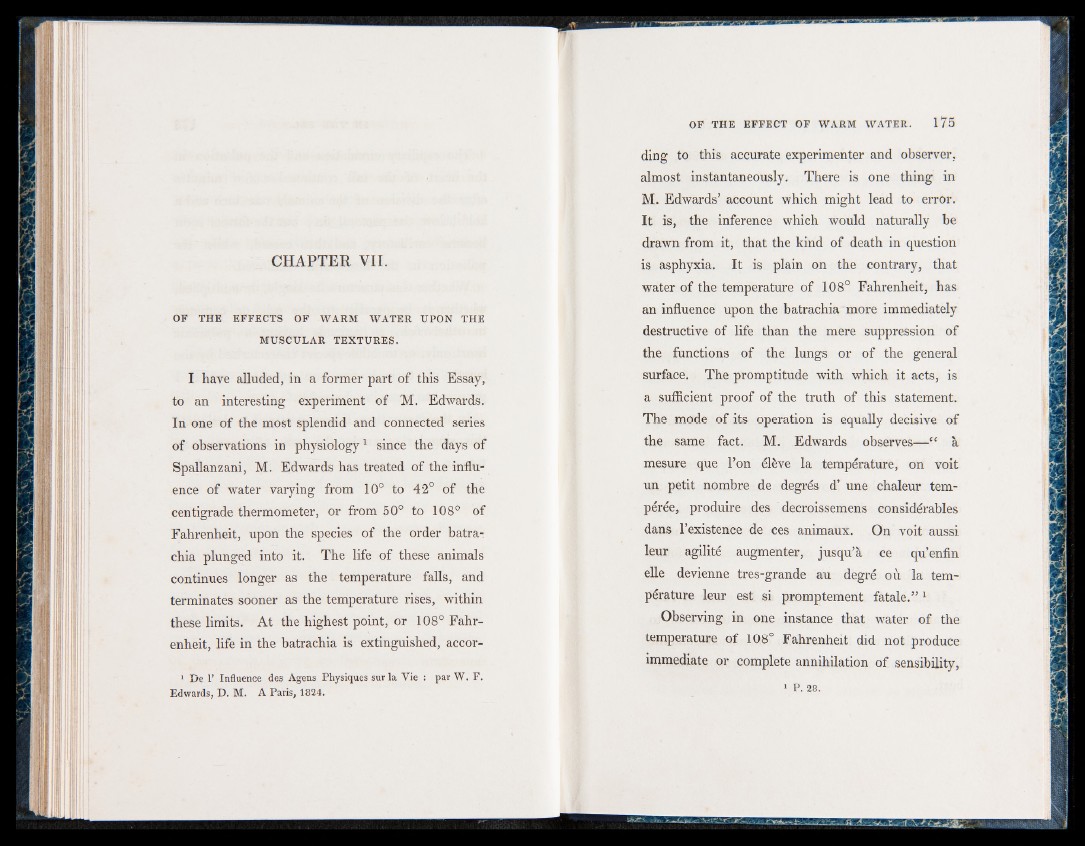
CHAPTER VII.
OF THE EFFECTS OF WARM WATER UPON THE
MUSCULAR TEXTURES.
I have alluded, in a former part of this Essay,
to an interesting experiment of M. Edwards.
In one of the most splendid and connected series
of observations in physiology1 since the days of
Spallanzani, M. Edwards has treated of the influence
of water varying from 10° to 42° of the
centigrade thermometer, or from 50° to 108° of
Fahrenheit, upon the species of the order batra-.
chia plunged into it. The life of these animals
continues longer as the temperature falls, and
terminates sooner as the temperature rises, within
these limits. At the highest point, or 108° Fahrenheit,
life in the batrachia is extinguished, accor-
1 De 1’ Influence des Agens Physiques sur la Vie : par W. F.
Edwards, D. M. A Paris, 1824.
ding to this accurate experimenter and observer,
almost instantaneously. There is one thing in
M. Edwards’ account which might lead to error.
It is, the inference which would naturally be
drawn from it, that the kind of death in question
is asphyxia. It is plain on the contrary, that
water of the temperature of 108° Fahrenheit, has
an influence upon the batrachia more immediately
destructive of life than the mere suppression of
the functions of the lungs or of the general
surface. The promptitude with which it acts, is
a sufficient proof of the truth of this statement.
The mode of its operation is equally decisive of
the same fact. M. Edwards observes—“ à
mesure que l’on élève la température, on voit
un petit nombre de degrés d’ une chaleur tempérée,
produire des decroissemens considérables
dans l’existence de ces animaux. On voit aussi
leur agilité augmenter, jusqu’à ce qu’enfin
elle devienne tres-grande au degré où la température
leur est si promptement fatale.” 1
Observing in one instance that water of the
temperature of 108° Fahrenheit did not produce
immediate or complete annihilation of sensibility,